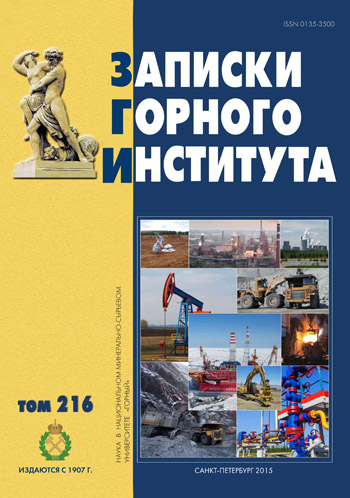Minimization of energy losse when starting a variable frequency drive through application of a genetic algorithm of optimization
- 1 — Ph.D., Dr.Sci. professor National Mineral Resources University (Mining University)
- 2 — postgraduate student National Mineral Resources University (Mining University)
Abstract
In the face of energy lack and rising energy prices one of the priorities of current researches is to improve energy efficiency of electric drives, which are widely used in modern industrial plants. Existing methods of minimizing losses are mainly designed for stationary regimes. At the same time, the development of algorithms for reducing losses in transient and in particular starting conditions is given little attention. Due to the high complexity of the description of the multivari-ate dynamic processes determining the optimal control laws is advantageously to be carried out us-ing stochastic optimization methods. The work seeks to substantiate the optimal starting character-istics of an asynchronous drive based on a genetic algorithm. A feature of the proposed method of optimization is the use of multiple simulation experiments to find start-up characteristics which provide a minimum energy loss. Automation of the search is performed using the developed pro-gram, which includes a module of a genetic algorithm and a module for interfacing with the elec-tric model in the MATLAB/Simulink environment. The program allows choosing the parameters of the genetic algorithm along with controlling the process of optimization. Application of the proposed method allowed obtaining the optimal starting characteristics «voltage – frequency» in a tabular form with consequent linear approximation of the data. Increase in efficiency due to the proposed start up law has been confirmed by comparing the simulation re-sults under conditions of using a traditional linear characteristic and derived optimal law. The es-timation of losses reduction has been carried out at the drive load of different kind in a wide range of its variation.
